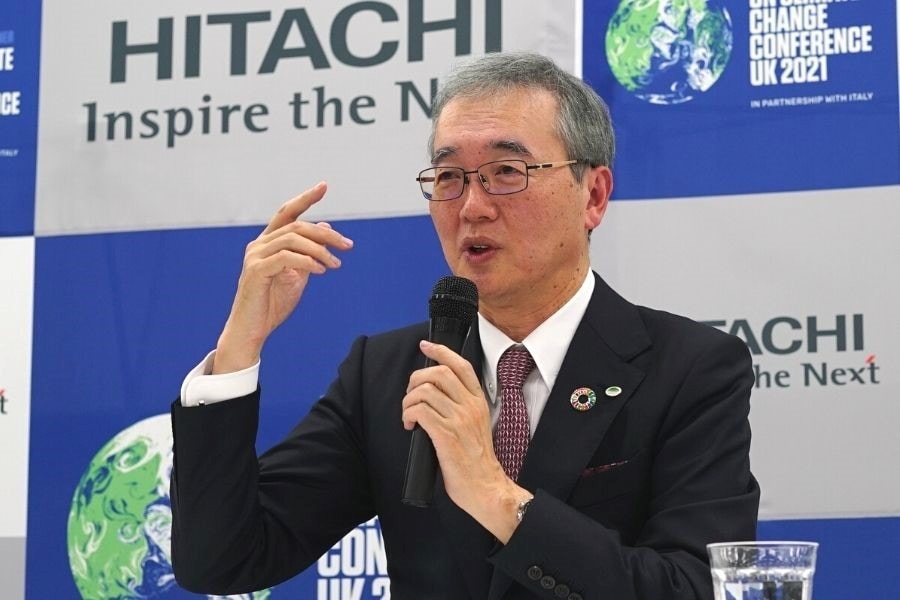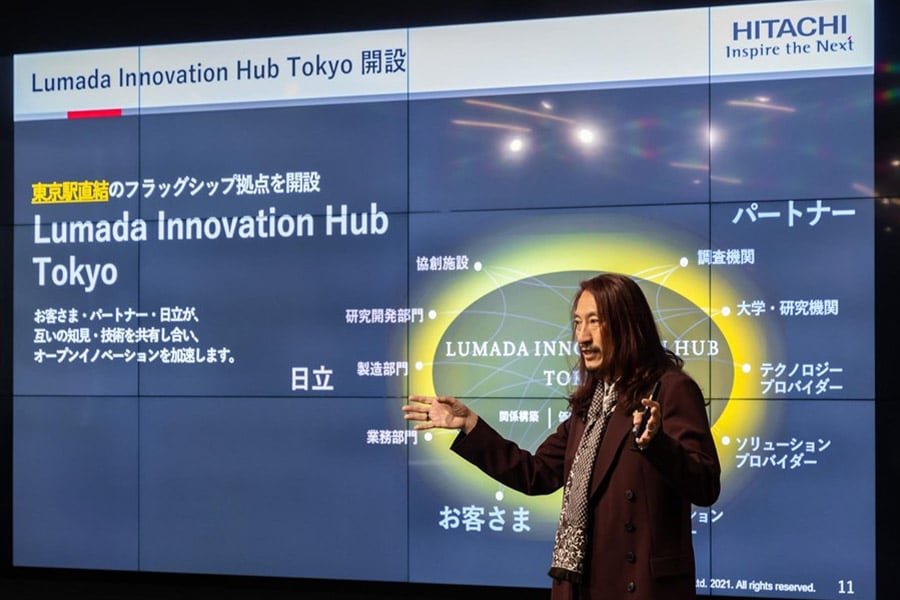Interview with CEO Taniguchi of Hitachi Digital: “Digital is an Important Driver of Growth”
Sep. 28, 2022
Kai O’Connor
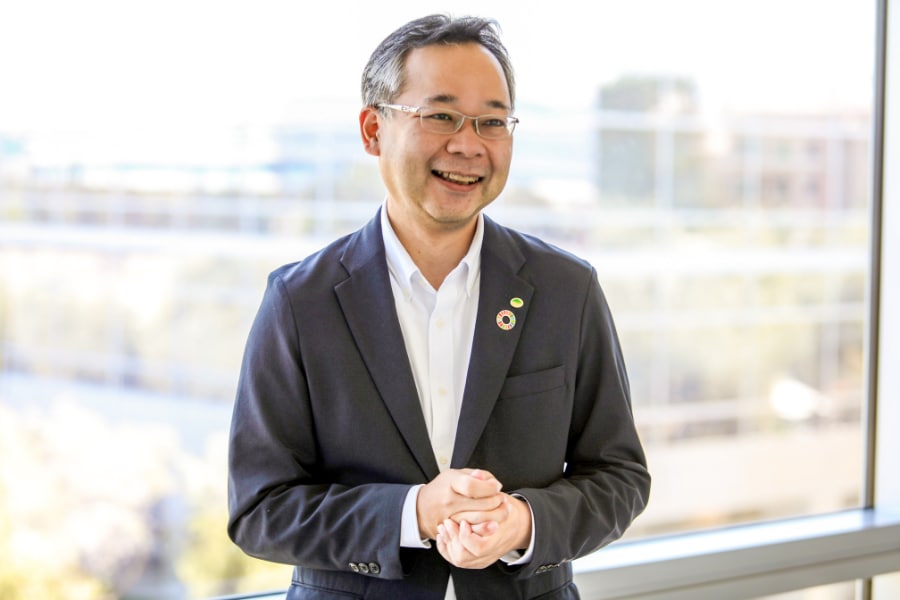
In April 2022, Hitachi, Ltd. announced its new Mid-Term Management Plan in which the company indicated a growth strategy centered on digitalization as one of its future policies. So what are Hitachi's digitalization strategies? Jun Taniguchi, CEO of Hitachi Digital LLC, talked about that.
The fields of digitalization that will be focused on in the future
--Firstly, please talk about your current position and career at Hitachi.
CEO Jun Taniguchi: I am the CEO of Hitachi Digital LLC, which was founded in April 2022 and am currently located in Silicon Valley, U.S. We are responsible for developing digitalization strategies for the entire Hitachi Group and for driving the expansion of the Lumada business (a generic name for solutions and services that leverage Hitachi's cutting-edge digital technologies).
I started my career as a front-end engineer and later assumed the role of overseeing control system engineers. In 2019, I took control of the product management of the home appliances and air conditioning business at Hitachi Global Life Solutions, a company that manufactures and sells home appliances and other products, and this year I became CEO of Hitachi Digital LLC, the position that I am currently in. I want to take advantage of my experience so as to expand the digitalization business across Hitachi.
--In recent years, Hitachi and many other companies have been focusing on businesses related to digitalization. What are your thoughts on these trends?
Taniguchi: In the past, many business models were simply based on selling products, but nowadays, a vast number of products are connected digitally, and technologies are evolving on a daily basis. I believe that digitalization connects products and makes the user experience more convenient and comfortable.
Moreover, I also see the areas of Web 3.0, the metaverse, and NFTs, which are hot topics recently, as very significant opportunities. Although these areas are still in their infancy, Hitachi is currently exploring what we can do in these areas, and I have no doubt that these will be areas that we will focus on in the future.
--In this context, what are your thoughts on the positioning of digitalization in its new Mid-term Management Plan?
Taniguchi: Hitachi has set a goal of becoming a global leader in the Social Innovation Business. We also believe that Hitachi's role in providing railroads, energy, and other social infrastructure is to enrich people's lives while also being environmentally friendly. To achieve these goals and fulfill our role, we believe that digitalization is an important growth driver for Hitachi.
The four digitalization strategies
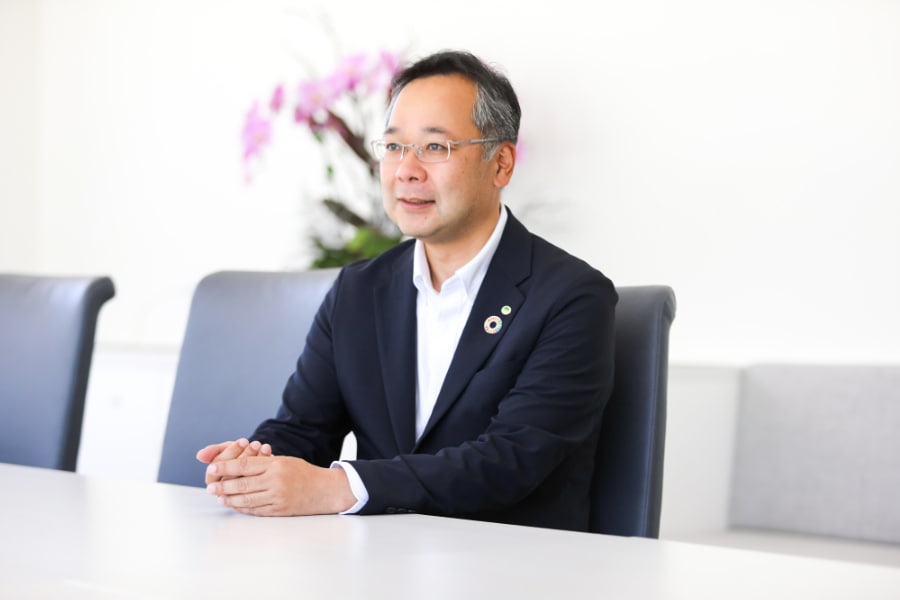
--Please explain in detail about the business strategies for digitalization, which is a growth driver.
Taniguchi: We have devised four strategies to further strengthen and expand Hitachi's digitalization business. The first is a digitalization strategy to provide value to customers through "cyclical solutions" centered on Lumada, which Hitachi calls the "Lumada Business Growth Cycle" and describes it in four steps.
In the first step, issues are identified through design thinking (a method of thinking to find valuable solutions from the user’s or customer's point of view). The second step is to build a system in the cloud to solve the issues. The third step is to expand and enhance the functionality of the system by, for example, connecting the built system to the product so that the operational status can be visualized. In the fourth step, we upgrade the operation of the system so that the client can focus on their own business, and at the same time, we analyze the collected operational data to identify new issues. Through this growth cycle, we will continue to develop the Lumada business.
--What are some of the other digitalization strategies?
Taniguchi: The second strategy is to reuse Lumada Customer Case. By making the customer cases more generic, they will be easier for other customers to reuse. We believe that this will benefit both Hitachi and our customers in various ways, including by enabling us to provide our digitalization solutions to customers faster.
The third strategy is related to the fact that we must compete in markets where we can take advantage of Hitachi's traits. Hitachi has been providing social infrastructure of high quality and reliability for many years, and we will continue to focus on the social infrastructure field as a priority market and enhance the user experience with the power of digitalization.
--What is the final digitalization strategy?
Taniguchi: Last but certainly not least is the developing and expanding of digital human capital. Hitachi intends to increase the amount of digital human capital to approximately 100,000 workers over the next three years in order to focus on our digitalization strategy. GlobalLogic, which has joined the Hitachi Group, has a very good system for developing human capital, including building relationships with universities and providing training opportunities. We will continue to develop and expand our digital human capital while incorporating this type of system into Hitachi.
We also believe that in order to secure talented digital human capital, it is important to convey to people outside the company in an easy-to-understand manner about what Hitachi can contribute to society and the value that we can provide. By doing so, we believe that understanding and sympathy with Hitachi will deepen, making it easier to attract digital human capital.
Challenges to implementing the digitalization strategies
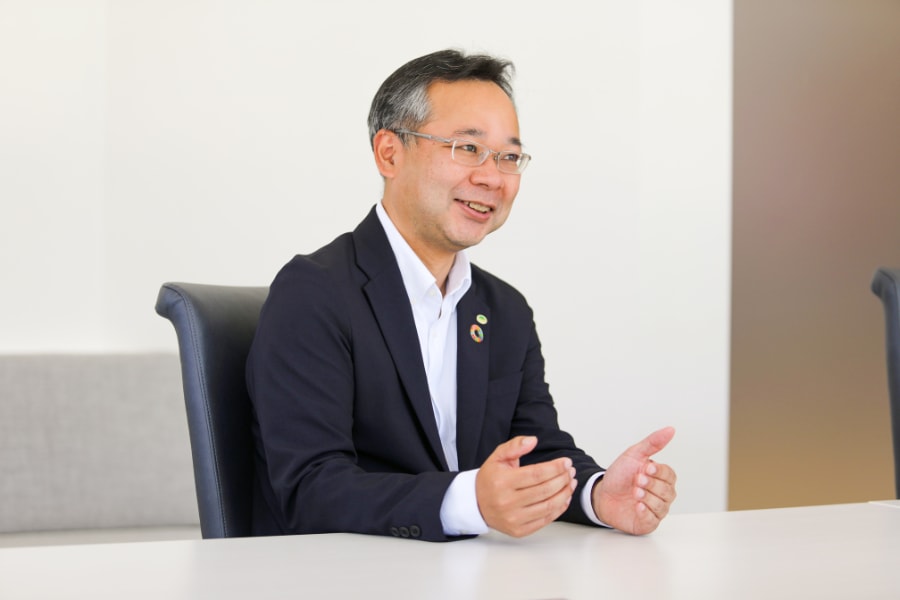
--What are the challenges that you are facing in implementing such digitalization strategies and how are you working to solve them?
Taniguchi: To my mind, there are three challenges. First, there does not always appear to be sufficient understanding within the company of what can be done digitally. To solve this problem, we plan to hold the Hitachi Digital Summit in the United States in October 2022 that will be attended by Hitachi Group leaders.
Hitachi Group customers who have succeeded in digital transformation (DX) will be invited to this event to share their experiences of how they achieved DX for their businesses and increased profits through the customer journey (the process of how customers decide to purchase a product or service), which will create an opportunity for participants to learn. We believe that this will deepen their understanding of what can be done by leveraging digitalization and will help speed up the growth of their digitalization businesses.
--What are the other challenges?
Taniguchi: The second challenge is that, in order to circulate the Lumada Business Growth Cycle, it is difficult to effectively collaborate to achieve the goal because of the wide variety of divisions and group companies involved. To solve this problem, I believe that Hitachi Digital must first lead the divisions and group companies while jointly creating a business plan and making the respective roles clear.
Another issue is to make it easier to reuse customer cases. Although there have been efforts to promote reuse previously, it has mostly been from the perspective of the solution creator, while the perspective of the users has been lacking. If solutions are not created with the involvement of the users, the reuse of customer cases will not move forward. Therefore, we are currently working on a rule book for solution development.
These challenges will be the hurdles to growing our digitalization business that we are working to solve.
Hitachi's vision for a digitalized society
--Could you expand on the future world that Hitachi hopes to realize through digitalization?
Taniguchi: The idea of making life convenient and comfortable by destroying the global environment is no longer acceptable to society. I believe that Hitachi's role should be to make people's lives more comfortable, safe, and secure while conserving the global environment through digitalization.
The world that Hitachi hopes to realize in the future is a sustainable society with well-being, and we will contribute to the realization of such a society by utilizing digitalization and co-creating with our customers.


